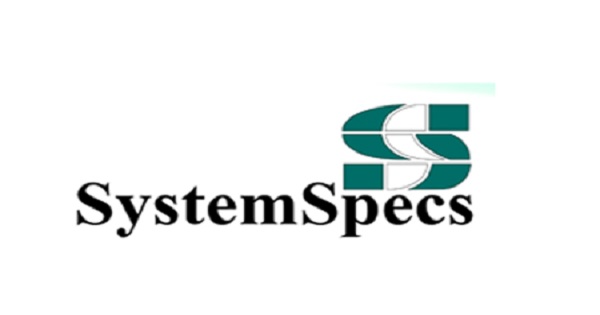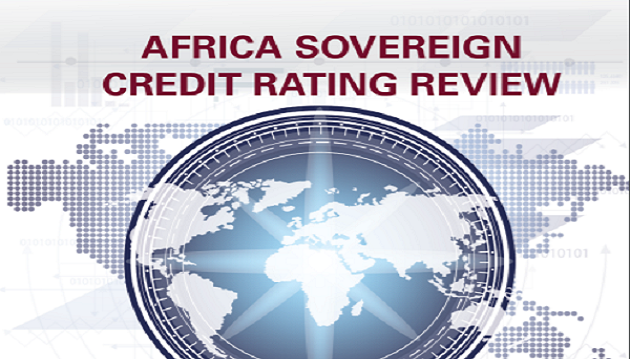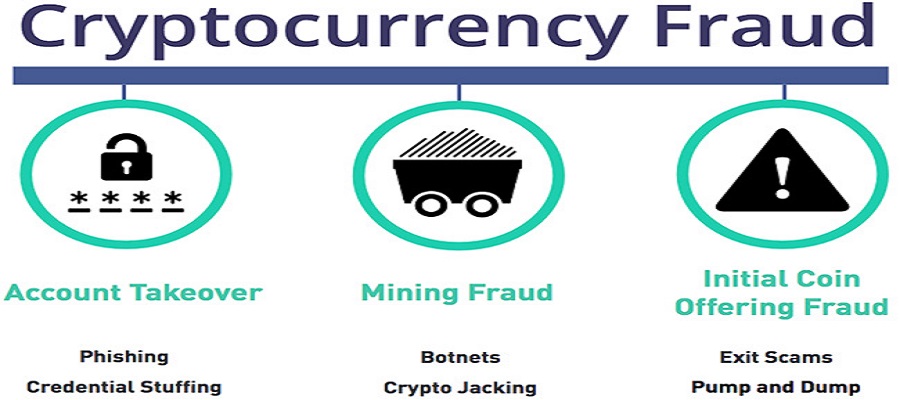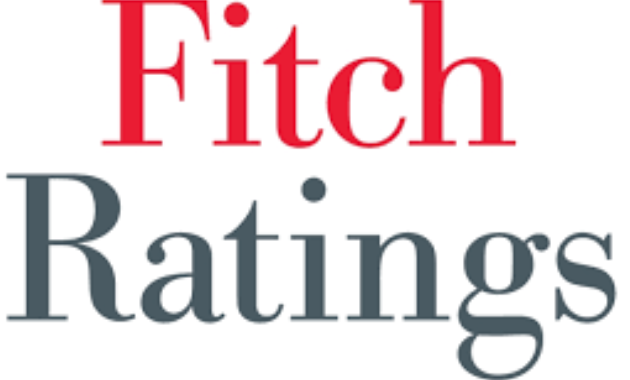E-Financial
SystemSpecs Seeks Special Fund to Drive Financial Inclusion

SystemSpecs Limited, has called on the Central Bank of Nigeria (CBN) to establish a special fund to deepen its financial inclusion goals.
Deremi Atanda, executive director, who spoke on the sidelines of Digital Pay Expo in Lagos at the weekend, said there are many issues around the push for financial inclusion, adding that literacy is one of them.
He stressed the imperative for a special fund to drive financial inclusion, adding that the Universal Service Provision Fund (USPF) is an example of the intervention the Federal Government could make to ease the drive on the lenders.
“I think the banks are committed to financial literacy but it won’t happen in one year. It is a commitment for 2020, which didn’t start yesterday. I have been part of the commitment since 2007. We need to evaluate where we are, so we don’t get derailed, and where we want to be. These are the kind of things we must do. When those targets were set, we have the financial implication of what it will cost, which is not the same now. So, who is going to plug that gap for 2020 dream to be realised? Along the way, there have been many disruptions they didn’t factor in, both the economic aspect and technology.
“The honest truth is that the pervasiveness of technology is going to make the realisation of these things a lot easier, faster but someone needs to be committed to facilitating it. USPF for example (in the telecoms sector), is there (to ensure that the unserved and underserved rural communities are reached through service subsidy). There is need for a commitment in terms of funding to make sure financial inclusion happen. It might interest you that majority of people investing in that are foreign institutions such as the Bill Melinda Foundation and you ask yourself where the counterpart funding is coming from local institutions. The bank has just committed itself to SINEF, which is rolling out about 500, 000 agents, which CBN is also part of.
“But don’t forget that the interface of business with the realisation of national policy, money will go after money. If the agents are just to work to achieve a national policy that will not be economically beneficiary to them, somebody must incentive it so that national objection is realise. It is just a matter of time, when that business is worthwhile and there is a plug in from the right agencies of the government, sooner than you think that will happen,” he said.
E-Financial
African Union Launches Credit Rating Agency to Promote Regional Economic Integration

The African Union has taken a significant step towards promoting economic resilience in Africa with the launch of the African Credit Rating Agency (AfCRA).

The new agency aims to provide a fair, transparent, and unbiased credit rating system, addressing the biases of global rating firms that have reportedly cost Africa over $75 billion in investment opportunities.
According to Kenya’s President, William Ruto, who unveiled the agency at an AU event in Addis Ababa, Ethiopia on Friday, “Global credit rating agencies have not only dealt us a bad hand, they have also deliberately failed Africa.”
Ruto criticized the flawed models, outdated assumptions, and systemic bias used by global rating agencies, which paint an unfair picture of African economies and lead to distorted ratings, exaggerated risks, and unjustifiably high borrowing costs.
The launch of AfCRA is a response to the long-standing grievances of African countries regarding their treatment by international credit rating firms.
The agency aims to provide fair, transparent, and development-focused credit ratings that reflect the realities and potential of African economies.
Improving Africa’s rating by one notch could unlock $15.5 billion in additional funding for the continent, according to Ruto.
The idea of creating an African credit rating agency has been in the pipeline for years, with the AU officially announcing its plans to move forward with the project in September 2023.
The push for an African credit rating agency gained momentum in 2022 when Senegal’s former president Macky Sall called for a new system to “end the injustices” faced by African countries.
The African Credit Rating Agency is part of Africa’s continuous march towards economic resilience, which also includes the recent establishment of the African Energy Bank, headquartered in Nigeria.
The bank aims to provide support to unleash Africa’s energy potential and bring an end to energy poverty on the continent.
E-Financial
Nigeria Worst Hit by Crypto Currency Fraud

Fraud in the crypto industry in African continent has soared by 48 percent over the past year and Nigeria is worst hit according to report by CAJ News.

This is according to the Sumsub State of the Crypto Industry 2025 report, which indicates Nigeria recorded the highest rate of fraud across the sector, at 8,3 percent.
Thus, this percentage of verification attempts were flagged as fraudulent.
Uganda, Kenya and Tanzania all have fraud rates of 4,8 percent, with Cameroon (4,5 percent), Ethiopia (3,7 percent), Ghana (3,5 percent), Algeria (2,6 percent), Benin (2,6 percent) and Morocco (2,1 percent) recording significant rates.
The most popular fraud types are document forgery (affecting 31 percent of surveyed companies), phishing (20 percent) and money mulling (15 percent), followed by account takeover (14 percent) and forced verification (12percent).
Simsub, the cyber crime expert, believes this surge highlights the need for companies to adopt artificial intelligence (AI)-powered detection, biometrics and continuous monitoring to enhance security.
The report states that innovations like biometric checks, AI-backed automation and document-free verification have boosted crypto platform users’ on-boarding success rates to 93,39 percent and reduced verification time by 46 percent, overall improving customer on-boarding while reducing drop-off cases.
Hannes Bezuidenhout, Vice President of Business Development (Africa) at Sumsub, said Africa’s growing adoption of crypto provided its own challenges, but the company foresaw increasing demand and growing user expectations across the continent.
“So it’s crucial for VASPs operating in the region to implement secure verification systems and stay vigilant to fraud, while keeping an eye on evolving and new regulations concerning the crypto sector to avoid fines.”
VASP is an acronym for virtual asset service provider.
E-Financial
Banking Consolidation Less Likely as Nigerian Banks Meet Capital Requirements – Fitch

Fitch Ratings has said that Nigerian banks are making significant progress in raising core capital to meet new paid-in capital requirements. The rating agency noted that the banks are generally on track to meet the end-of-first quarter (Q1) 2026 deadline.

This is supporting a recovery in capitalisation from the impact of naira devaluation, providing fuel for business growth. It also reduces the likelihood of significant banking sector consolidation.
In March 2024, the Central Bank of Nigeria announced a significant increase in paid-in capital requirements (share capital plus share premium) for commercial, merchant and non-interest banks.
Banks have three ways to comply – through equity injections, M&A and downgrading their licence authorisation.
Fitch-rated banks have made notable progress towards compliance. Almost all have raised capital or formally launched the process to do so.
The two largest banks, Access Holdings and Zenith Bank, are the first to secure enough fresh capital to meet the N500 billion requirement for an international licence. First HoldCo, United Bank for Africa and Guaranty Trust Holding Company are taking a phased approach.
They have recently raised capital and have shareholder approval to begin raising more to meet the N500 billion requirement. First HoldCo’s and United Bank for Africa’s recent rights issues are awaiting final regulatory approval.
Fidelity Bank and FCMB Group have completed initial capital raisings but will need to raise more to maintain their international licences. As second-tier banks, they must raise significantly more capital relative to their balance sheets than larger banks.
They have extraordinary general meeting approval for this, although they could consider downgrading to a national licence as they each have just one foreign subsidiary.
Ecobank Nigeria Limited (ENG) and Jaiz Bank needed only small capital injections to meet their requirements and have already achieved compliance. We estimate that ENG is still in breach of its total capital adequacy ratio (CAR) requirement of 10 percent but it has further capital-raising plans to restore compliance. Stanbic IBTC Holdings has launched a rights issue to raise capital to maintain its national licence.
Strong investor appetite has ensured that the vast majority of capital raisings so far have been successful, and most first- and second-tier banks should be able to meet their new capital requirements through capital raisings alone. Therefore, we believe the likelihood of banking sector consolidation among first- and second-tier banks has decreased.
Union Bank of Nigeria (UBN), which is also in breach of its 10 percent CAR requirement, and third-tier banks have generally been slower to raise capital. Wema Bank has shareholder approval to raise enough capital to retain its national licence and plans to launch the process in April.
Coronation Merchant Bank recently received board approval. It is not clear whether UBN and unrated third-tier banks have received the necessary approvals. M&A activity and licence downgrades remain more likely among third-tier banks.
The capital raisings are contributing to a recovery in capitalisation from the impact of naira devaluation, which put pressure on capital ratios and increased US dollar credit concentration risks. Strengthened buffers over minimum CAR requirements will mitigate risks from a challenging operating environment, including regulatory intervention and further naira volatility, while providing room for business growth.
The capital raisings are unlikely to lead to banks with Long-Term Issuer Default Ratings (IDRs) of ‘B-’ being upgraded given the constraint of Nigeria’s ‘B-’/Positive Long-Term IDR.
However, they could contribute to Outlook revisions to Positive for some banks, and, providing CAR compliance is restored, to upgrades for UBN and ENG (both rated ‘CCC’). Capital raisings are more likely to affect National Long-Term Ratings, which measure the relative creditworthiness of Nigerian issuers.

 E-Business3 days ago
E-Business3 days agoSchmidt, Ex Google Chief Says AI Risky in Terrorist Hands

 News3 days ago
News3 days agoFG Order MDAs to Close Commercial Banks’ Accounts, Enforce TSA Policy

 News2 days ago
News2 days agoTikTok Returns on Apple, Google US App Stores as Trump Delays Ban

 General News2 days ago
General News2 days agoResearchers Develop Innovative Treatment for Malaria

 Telecom2 days ago
Telecom2 days agoVisa Launches Report on Digital Payment Landscape in Nigeria, Shows Positive Outlook

 E-Financial2 days ago
E-Financial2 days agoAfrican Union Launches Credit Rating Agency to Promote Regional Economic Integration

 E-Financial3 days ago
E-Financial3 days agoNigeria Worst Hit by Crypto Currency Fraud

 Telecom3 days ago
Telecom3 days agoSalesforce Collaborates with Tech Leaders to Launch AI Energy Score for Model Efficiency












